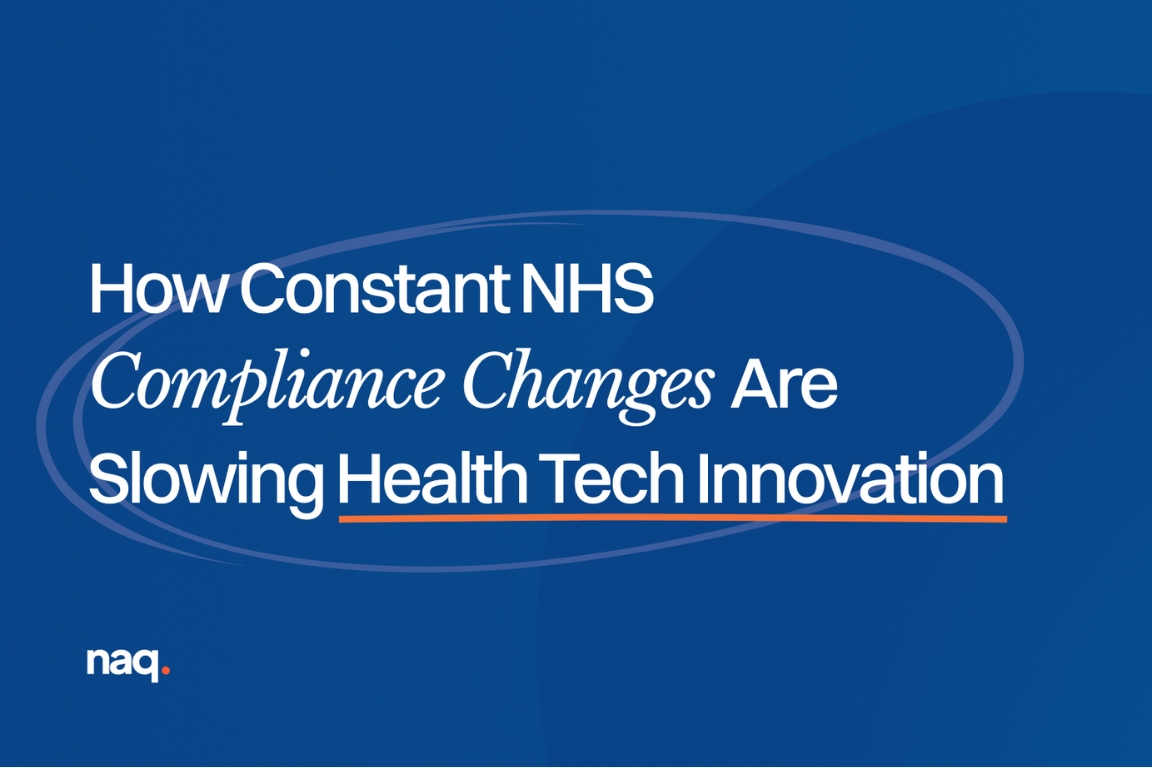
How Constant NHS Compliance Changes Are Slowing Health Tech Innovation
Constant NHS compliance changes are slowing health tech innovation because every update creates uncertainty and administrative overhead for the companies driving progress. Each revision to NHS DSPT compliance, DTAC compliance, or ISO 27001 compliance forces teams to pause development, interpret new requirements, and adjust documentation before moving forward. The result is time and resources diverted away from product improvement and clinical impact. When health tech companies spend more effort keeping up with evolving regulations than building new solutions, both innovation and the overall pace of digital transformation in healthcare slow down.
Evolving NHS and Data Compliance Requirements Create Uncertainty
Frameworks such as DTAC, DSPT, and ISO 27001 exist to protect patients, safeguard data, and ensure technologies entering healthcare are safe and trustworthy. But their requirements are far from static. Each year there are new versions, interpretations, and documentation updates.
The DSPT is now transitioning toward alignment with the Cyber Assessment Framework (CAF), strengthening NHS cybersecurity standards. DTAC guidance continues to evolve as the NHS refines how it evaluates digital tools for safety, accessibility, and interoperability. And ISO 27001, one of the most widely adopted international standards, recently introduced major revisions that require organisations to realign policies and controls by the transition deadline.
This creates a constant state of adjustment. What passed procurement last quarter might now require new evidence or policy reviews. NHS buyers may ask for updated DTAC compliance assurance or documentation aligned with a CAF-based DSPT. Each change slows teams down. Compliance staff stop to interpret requirements, engineers are pulled from product development to update documentation, and commercial teams delay conversations while they confirm the company’s readiness. This cycle of rework results in slower progress, longer procurement processes, and less time spent improving the products designed to move healthcare forward.
When Reactive Compliance Slows Digital Health Innovation
When frameworks evolve faster than the guidance explaining them, health tech teams lose valuable time trying to interpret what’s new instead of innovating. For smaller or scaling organisations without in-house compliance expertise, this uncertainty is especially damaging. Compliance is designed to enable safe innovation, but when teams don’t know exactly what’s expected of them, it becomes a barrier rather than a foundation for growth.
Many digital health companies still take a reactive approach. They prepare for audits once a year or only when a buyer requests documentation. By the time those documents are ready, the standards have often changed. This stop–start cycle drains resources, increases the risk of human error, and leaves gaps between audits. It also exposes companies to risk, as evidence quickly becomes outdated. While teams chase the next checklist, new opportunities are delayed or missed altogether. Instead of focusing on building secure, patient-centred technology, teams are forced into administrative cycles that consume their time and energy.
The Impact of Regulatory Uncertainty on NHS Procurement and Investor Confidence
For NHS buyers and private healthcare providers, regulatory uncertainty creates hesitation. Procurement teams depend on clear, consistent standards before approving any new technology. When frameworks shift mid-procurement, that confidence drops. A buyer unsure whether a supplier’s DTAC evidence still meets current requirements will often pause onboarding until the changes are confirmed. Even when a product is clinically safe and secure, confusion in documentation can hold back adoption.
The same friction affects investors. Due diligence slows when a company’s compliance roadmap depends on moving targets like NHS DSPT compliance or ISO 27001 updates. Predicting timelines, costs, and risk exposure becomes difficult. Some investors wait until the landscape stabilises before making decisions, but in digital health, regulatory change rarely stands still.
Innovation isn’t the issue. The challenge is the uncertainty that makes progress unpredictable.
How Automated Compliance Software Restores Predictability
The fastest-growing digital health companies are finding ways to restore predictability to their compliance processes. Rather than reacting manually to every update, they are adopting automated compliance software, like Naq, that continuously tracks and aligns frameworks such as DSPT, DTAC, ISO 27001, and GDPR.
Automation removes the guesswork. Evidence, policies, and risk registers stay current as standards evolve. Alerts notify teams of relevant changes, allowing them to act before issues escalate. Instead of working from spreadsheets and static reports, companies gain real-time visibility into their compliance posture.
This shift replaces reactive compliance with a continuous, proactive process. Procurement teams gain confidence that suppliers are always audit-ready. Investors see governance systems that evolve alongside regulation rather than lagging behind it. And internally, leaders can plan product launches and market entries knowing that their compliance remains consistent.
Predictability changes the entire dynamic. When companies no longer have to pause for every framework update, they can move faster, take on new partnerships, and scale into new markets with confidence.
How Automated Compliance Accelerates Innovation
Predictability enables innovation. When compliance is continuous and automated, procurement moves faster because the required evidence is already available. Development teams remain focused on improving technology rather than maintaining documentation. Sales teams approach buyers with confidence, knowing that compliance proof is ready when needed. Investors gain greater trust in a company’s ability to manage risk and grow responsibly. In this environment, regulation and innovation no longer compete for attention. Instead, compliance becomes part of the foundation that supports faster, safer growth.
How Naq Helps Digital Health Companies Stay Ahead
Naq’s health tech compliance platform was designed for this constantly changing environment. It automates compliance across more than 20 frameworks (including NHS DSPT compliance, DTAC compliance, ISO 27001 compliance, and GDPR) giving companies continuous visibility and control over their regulatory obligations.
The platform monitors NHS and international standards in real time, automatically updates documentation as requirements evolve, and maps shared controls across frameworks to eliminate duplication. Everything is managed from a single dashboard, keeping teams audit-ready without the need for manual oversight or repetitive consultancy projects.
By combining automation with expert support, Naq helps health tech companies reduce complexity, increase efficiency, and maintain confidence across every market they operate in. Instead of reacting to regulatory change, they can focus on innovating safely, quickly, and at scale.
From Regulatory Uncertainty to Continuous Innovation
Constant regulatory change is unavoidable in healthcare, but uncertainty doesn’t have to be. By replacing manual, reactive processes with continuous, automated compliance, digital health companies can move faster, scale smarter, and win NHS and private sector contracts more efficiently. Predictability restores clarity. It gives innovators back the time and confidence they need to create solutions that truly transform healthcare.
Book a demo to see how Naq helps digital health companies turn constant regulatory change into continuous progress.










